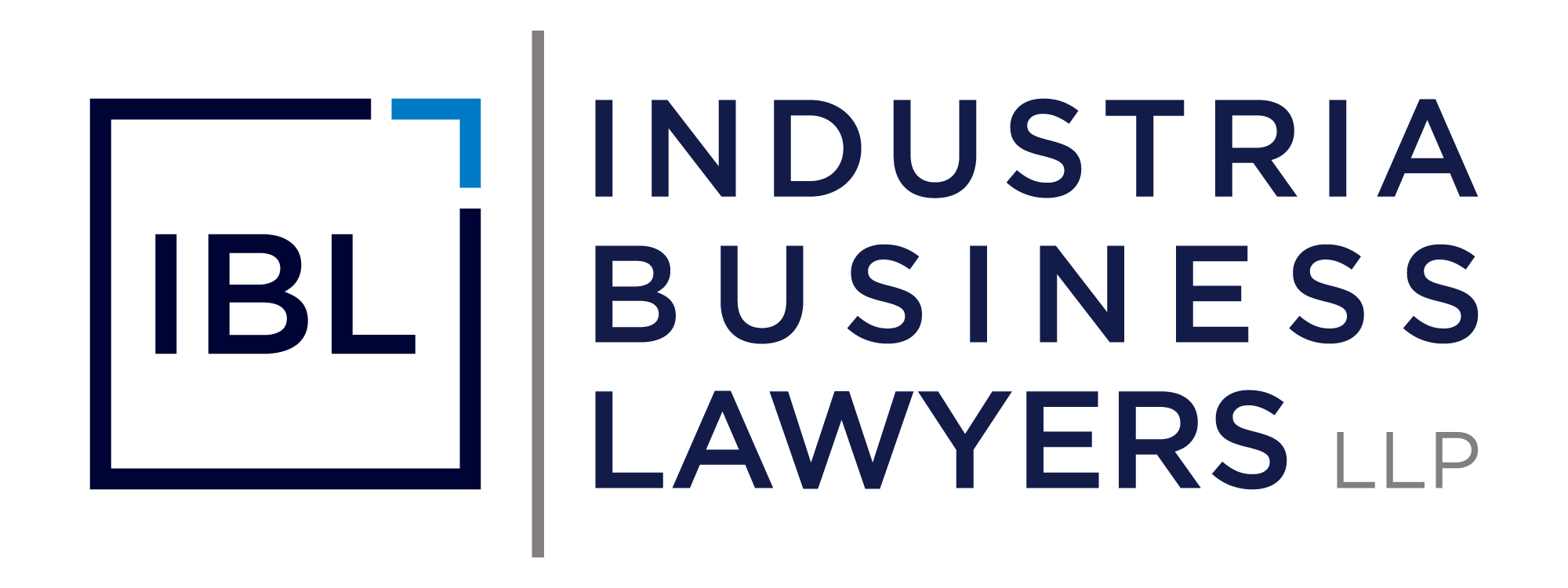Written by Eric Goldman
All start-ups face hurdles when launching; it’s baked into the process. Some of those hurdles are only going to be overcome with time and effort; some of those hurdles are only going to be overcome with access to capital. However, some of those hurdles can be met quickly and more efficiently if a start-up pays attention to its intellectual property needs and rights.
Struggling to build brand awareness? That’s where a trademark or service mark is going to be of incredible value. That trademark or service mark is going to help to differentiate your business and its offerings from the competition and let your target customers know that it’s your start-up reaching out to them — and no one else. Struggling to communicate your unique value proposition to the marketplace? That’s where understanding copyrights will make a big difference. Your start-up can craft its origin story, protect that story, and then roll that story out in different yet consistent iterations that no one else can copy. Is your product or service useful, non-obvious, and novel? Then maybe applying for a provisional patent is a good idea for your business. It gives you twelve months of protection to “kick the tires” on your offerings and business plans and may actually help to attract venture capital.
There are many benefits to paying attention to your start-up’s intellectual property early, and yet many start-ups fail to do so. Here are some of the most common intellectual property mistakes start-ups make when launching their businesses.
1. Thinking that if it’s on the internet, it must be free.
The most common place this occurs is on websites. Every start-up launches a website at some point, usually very early in the game. During those pre-launch times when there are no pictures of actual products and actual customers, a lot of companies will just do a Google search for images to put on their websites. Maybe they do a search for “free art” or “royalty-free pictures,” at least making an attempt to find images to use that are free. Frequently, people find images that are not paywalled and they just assume that the images are free for the taking. It’s important to remember that copyright owners do not have to put a copyright notice on their works anymore, so the absence of a © symbol on an image does not mean it’s in the public domain.
There are law firms that only exist to run searches for the use of their clients’ copyright-protected images. When they find someone using one of those images without permission, these law firms demand thousands of dollars under the threat of copyright infringement litigation. A simple mistake of using a piece of found content can become very expensive.
2. Not searching to see if someone is using your brand name or your product name.
Many start-ups pick a name for their product or company that, in their minds, instantly communicates who the company is and what the company is selling. The challenge is that often there are other companies that have had the same idea to sell a very similar product and have picked the same name or a name very similar.
As a fictionalized example, consider a company that wants to sell an app people can use to produce professional-level sound recordings on a Mac or PC. The company decides to call its product “Producr.” The company invests in developing a logo treatment for the name Producr; develops a prototype; gets customer testimonials attesting to the value of using the Producr app; and starts approaching venture capitalists about financing the full launch of the app.
But when the venture capitalists do their due diligence, they find that there is at least one other music company in the marketplace using the name Producr. Not only that, another company has applied for a service mark registration in the word Producr for use in connection with advertising and marketing services. So, now, the company has to embark on an expensive rebranding of its product. Not only that, but the first impression that the company has made on the venture capitalists that it had been courting is that the company has not paid attention to some fundamental business principles or done its basic legal diligence.
3. Not checking if the brand name you want to use is eligible for trademark protection.
Not every brand name is eligible for trademark protection. Potential trademarks are divided into four categories: generic; merely descriptive; suggestive; and fanciful or arbitrary. Generic and merely descriptive marks are not eligible for protection; suggestive, fanciful, and arbitrary marks are.
Returning to the example of using the mark Producr for an app that produces sound recordings, it is more than likely that the U.S. Patent and Trademark Office will deny trademark registration for this mark on the grounds that the mark, Producr, merely describes the app that it is being used to identify. The creative misspelling of the word “Producr” will not make the mark any more registrable. The fact that someone else may obtain a service mark registration for Producr in connection with a non-music related product or service will also not make a difference.
Again, depending on how far along your start-up is in the development process, not being able to get a trademark registration for the brand name of your product or service can be a devastating blow. (However, keep in mind that, as a fallback, you may still be able to trademark a design mark – i.e., a graphical rendering of wording or a symbol. This is something to discuss with your IP attorney.)
4. Not using IP strategically.
The Federal government has established systems for protecting certain forms of intellectual property: copyrights, trademarks, and patents. In fact, copyright and patent protection originate in the U.S. Constitution, which allows for granting exclusive rights to writers and inventors for a limited time. However, the trade-off for getting that government monopoly is that writers and inventors have to give the public access to their creations and inventions. That means all of the competitors to your start-up will be able to review the crown jewels of your business.
One possibility is taking advantage of the option to file a provisional patent. Since 1995, the U.S.P.T.O. has allowed inventors to get 12 months of protection for a product or service without making all of the disclosures that are required when making a full patent application. This can allow a company to get some protection while it tests the market viability and funding options available for a product or service, including protecting public disclosure during this phase.
Another possibility is making the decision to keep intellectual property private and treat it as a trade secret. In order to maintain a trade secret, all documentation pertaining to the product or service has to be marked as confidential and kept confidential. Anyone being given access to the material being treated as a trade secret should sign a non-disclosure agreement, which means they cannot share the information with anyone else. While there is no Federal trade secret registration system, there is a Federal law — the Defend Trade Secrets Act — that allows the owners of trade secrets to take action against domestic and international actors who would use your company’s trade secrets or make those trade secrets public.
5. Not Making Sure Your Start-Up Owns Its Intellectual Property.
Many times, start-ups are launched by teams. Different team members make contributions to the business effort: some of those contributions may be protected by copyright; some may be patentable; and some may be trade secrets.
A very common mistake is that people assume that if someone working for a start-up or co-founding one makes a contribution to a start-up that is protected by copyright, the start-up owns that copyright as work-made-for-hire. However, only a very limited number of copyrightable works are eligible to be works-made-for-hire under the U.S. Copyright Act.
A work-made-for-hire is either (i) a work created by an employee within the scope of their employment or (ii) a specially commissioned work that falls into one of nine narrowly drawn categories, where a writing exists prior to the creation of that work specifying that it is a work-made-for-hire. So, since most start-ups don’t have employees, it is very important to have signed writing in place with everyone making contributions of copyrightable material. In fact, one of the first things venture capitalists will ask a start-up that is a potential investment target is whether they have confidentiality and IP assignment agreements with all of their contributors.
Similarly, the inventors of a product or service are the owners who are eligible to obtain a patent on that product or service. Thus, it becomes very important for start-ups to have writings from all the inventors contributing to their products or services, assigning those patent rights to the company. Your legal counsel can make sure you have these written agreements in place and that they are airtight.
Another common mistake happens when a start-up intending to sell a consumer product starts working with a manufacturer. Often, the start-up comes to the manufacturer with a formula. The manufacturer will then do a small sample run of the product to see how the formula actually performs. More often than not, the manufacturer will then make recommendations as to how to improve the formula. The process may go through multiple iterations before a final formula is created.
Unless the start-up has a firm written agreement in place with that manufacturer, the manufacturer can then claim ownership of the formula. This makes it very difficult to conduct business, raise capital, or switch manufacturers. So, it is critically important before beginning to work with any manufacturer that there be a written agreement in place securing ownership of the product formula with the start-up.
6. Not Understanding the Limits of Software Licenses.
Many start-ups intend to sell software-dependent products such as apps. A lot of those apps include third-party software. It’s very important to understand the limitations on commercialization included in the licenses for that third-party software. In addition, it’s best to remember that software is both a product and a service, the service being technical support and access to subsequent developments.
For example, many start-ups use open-source software. Simply put, open-source software is software that is fully accessible and reviewable by third parties. However, the fact that the software is accessible and reviewable does not automatically mean that it is free to use in commercial products. Moreover, some open source licenses are what is called “copyleft”-style, meaning they require that, even though anyone can use and modify the software for free, any modifications must be released for free to the public under the same license. In addition, many developers of open-source software may let third parties use the software for free but will charge for installation, technical support, and troubleshooting. It’s very important to understand the constraints and possible hidden costs of the open-source software a start-up incorporates into its offerings.
Other start-ups will use proprietary software in the creation of their products. The terms of the license may be clear, in that the owner of the software gets a royalty or license fee. What may be less clear is who owns any improvements to the licensed software — the owner of the underlying software or the start-up who created the improvement? It also may not be clear that the licensee automatically gets to include any updates or improvements in the licensed software into its products or services. It is critically important to understand all of the rights and limitations in the license of any software a start-up utilizes in its offerings.
7. Forgetting That Mistakes Are Fixable and May Present New Opportunities
It is the very rare intellectual property mistake that is fatal to a business. Yes, it may take time and money to resolve. Hopefully, the mistake does not require litigation. But every mistake is a chance to regroup, re-evaluate, re-launch, and become a stronger, smarter company. Just keep moving forward.
If you have any questions about anything in this article or want help in protecting your start-up’s intellectual property, lawyers at Industria Business Partners are available to help—don’t hesitate to contact us.


